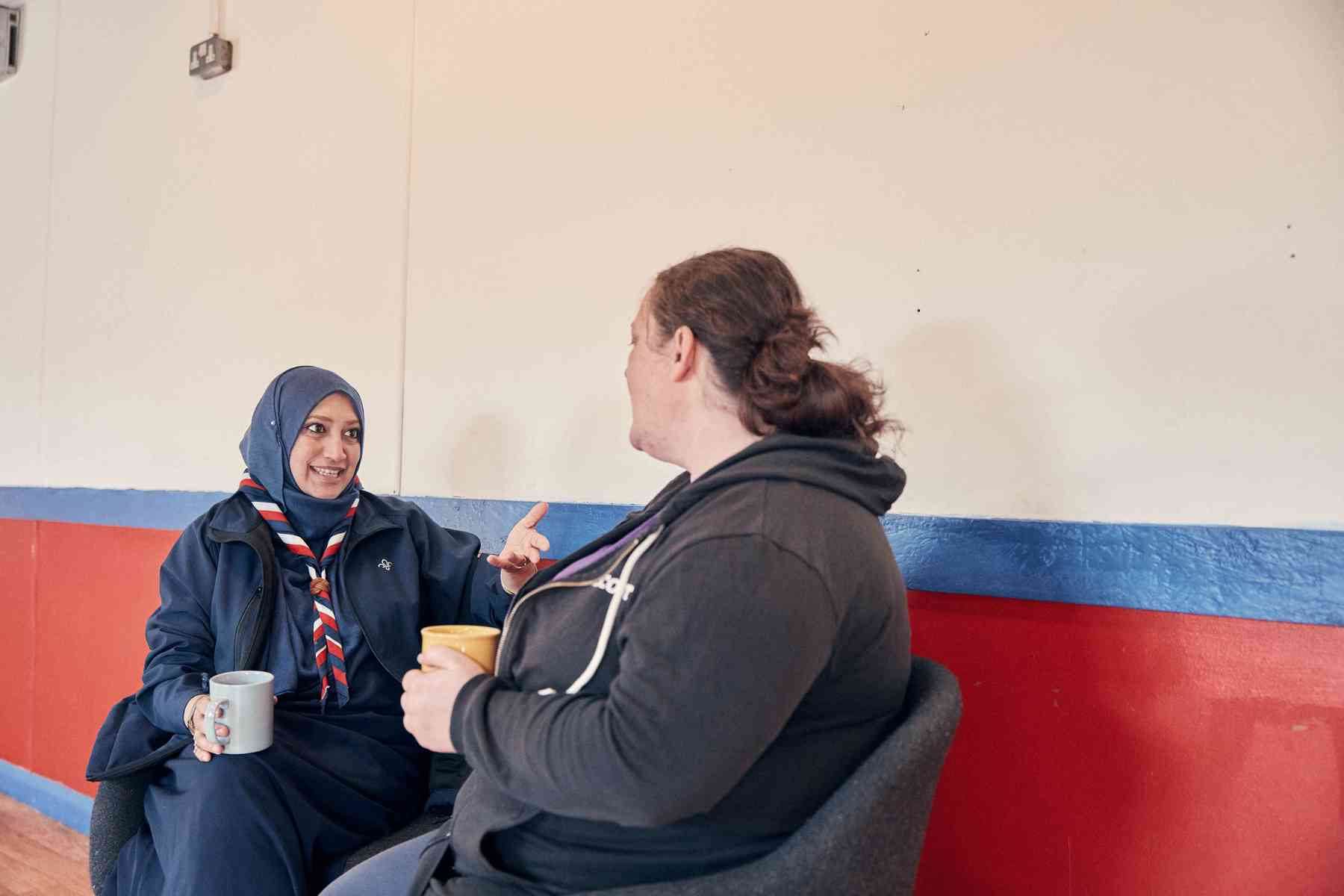Volunteering at Scouts is changing to help us reach more young people
Volunteering is changing to help us reach more young people
Volunteering is changing at Scouts. Read more
Talking to new volunteers
Making contact with a new volunteer? Use our tips to help you have a great initial conversation
Quick links
There are lots of different ways a potential volunteer might contact you. It could be that a parent has witnessed all the excitement of a section meeting and wants to be a part of it. Or you might be responding to a digital enquiry.
Regardless of how they get in touch, remember to:
- Make contact as soon as possible
- Keep it positive, informal and relaxed
- Steer clear of Scout jargon or acronyms
- Communicate that there’s a role or task for everyone at Scouts
- Prepare your leadership teams to warmly welcome new adults
- Have a pen and paper handy to record key details
- Organise time for a chat that suits them – avoiding chatting in the middle of their busy school run, for example
- Let them know how long that chat might last, and communicate that you’d love to find out a little more about them, so you can best support

Check out more tips below
- Be welcoming from the very first ‘hello’.
- Thank them for expressing their interest.
- Remember: this is a chat, not an interview.
- Think about who is the best person to get in touch with a new volunteer – they may need to inject enthusiasm into the conversation, adapting to the different communication styles and preferences of those interested in joining us.
- Ask about what they know about Scouts already.
- Ask if they already have a role in mind and how much time they have to offer.
- For those who are completely new to the Scouts, give a brief overview of what we’re all about.
- Start by sharing your positive experiences and memories of volunteering.
- Remember: we’re looking for people, not leaders – emphasise just how flexible volunteering with us can be.
- Reassure them they don’t need to know everything from the very start – all new volunteers are given training in their new roles, including support around safeguarding, designed to help volunteers stay up-to-date on safeguarding practice and their responsibilities as a member of Scouts.
- Remind them that new volunteers also undergo a DBS check to protect the safety of adults and young people at Scouts. This, alongside the experiences and support Scouts provides, will benefit them in their volunteer role as well as their everyday life.
- Remember: this is only the first conversation you’re having with a new volunteer – there will be plenty of time for you to delve deeper into the specifics of volunteering down the line
- For now, make sure the new volunteer knows they won’t be thrown in the deep end.
- Make sure they know they can try out different tasks – and even different groups – in order to find something they truly enjoy doing.
- Depending on whether they have a specific role in mind, briefly introduce the types of roles they can get involved in, including working with different age groups, fundraising, or helping with admin or management.
- Thank the new volunteer at the end of the conversation for spending time talking to you today.
- Let them know you’re excited to have them on board and that the next step will be for them to spend some time getting to know Scouts and the leadership team they might be a part of.
- Remind them they might even want to start their essential training, pointing them in the direction of the Scouts website for further learning, and helping them get started.
- Towards the end of the conversation, check in with the new volunteer. Have they got any questions? You may not know all the answers – but you can always find out and get back to them in your follow-up email.
- A follow-up email doesn’t have to be super formal. Summarise some of the key points you discussed, include the time and date for them to start Scouts in the capacity they expect, and share any plans they may need to be aware of as their journey goes on from here.